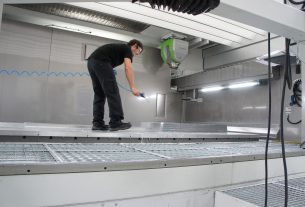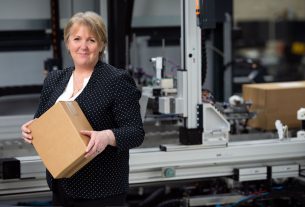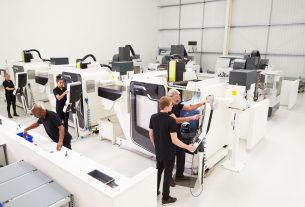M-Files advocates for improved document management practices amid rising cyberattacks in the manufacturing sector, which uniquely faces the challenge of protecting both digital data and essential physical systems
Recent reports highlight a significant rise in cyberattacks targeting UK manufacturers, emphasising the urgent need for these companies to implement secure, centralised information management practices.
According to Samppa Lahtinen, Senior Industry Solutions Manager at M-Files, manufacturers today are managing immense volumes of sensitive information, from intellectual property to supply chain data and regulatory information, making them highly attractive targets for cybercriminals.
“The recent surge in cyberattacks demonstrates that effective information management is essential for data protection and maintaining operational continuity and efficiency. By implementing centralised, secure processes, manufacturers can safeguard their data, reduce disruption risks, and improve productivity by making critical information accessible to those who need it.”
An increasingly vulnerable industry
Manufacturing has become one of the most targeted sectors for cyberattacks due to its heavy reliance on digital systems, interconnected supply chains, and high-value intellectual property.
According to a study released by Black Kite, the manufacturing sector accounts for 21% of ransomware attacks and places manufacturing entities at a significantly high risk, making them more than three times as likely to suffer a ransomware attack.
“As manufacturers adopt new digital tools, they face heightened exposure to cyber risks like ransomware, phishing, and other advanced threats,” Lahtinen noted.
“When data is inadequately protected, it creates vulnerabilities that cybercriminals are quick to exploit. A secure, centralised document management system is crucial for preventing unauthorised access to sensitive files, serving as a defence against today’s evolving cyber threats.
“It’s important to remember manufacturers are fighting a battle on two fronts: physical and digital. For example, intruders may attempt to access central servers remotely or even by infiltrating warehouses themselves. Technology that detects unauthorised login attempts is the first line of defence in these instances, notifying security teams of any suspicious activity.”
Lahtinen continues: “AI technology, including tools like Microsoft Copilot, has great potential in the manufacturing sector, but we must approach its adoption with a cautious, security-first mindset. As trusted AI tools are integrated into more workflows, a key challenge arises with pilot users who may unknowingly expose sensitive information to risk, particularly during testing. As companies explore new technologies, there is a real danger that employees could inadvertently use unverified applications or share confidential data, which opens the door to cyber vulnerabilities. It is essential for organisations to establish clear guidelines and security protocols to ensure that innovation does not compromise data security.”
Ensuring information is both secure and accessible
It is clear that manufacturers must ensure that employees can quickly and effectively access critical information, based on their security clearance. A robust system helps reduce the time staff spend searching for vital documents, streamlining access to crucial files like CAD drawings, specifications, and version histories. Centralising essential documents such as BOMs, work orders, production schedules, and estimates makes it easier for employees to retrieve the information they need when required, directly supporting continuous production.
“This streamlined approach to document management empowers manufacturers to focus on production and operational efficiency rather than spending unnecessary time navigating complex storage systems. By implementing a system that integrates seamlessly with existing manufacturing workflows, employees can access and share up-to-date information with confidence.
“Secure document management also enhances internal and external collaboration by providing encrypted sharing links and secure access controls, providing assurance that only necessary information is shared with external parties. This level of control helps reduce exposure to cyber risks while allowing secure collaboration across departments and with third-party vendors.
Lahtinen concludes: “Safe and centralised document management allows companies to protect valuable assets, reduce vulnerabilities, and improve productivity in an industry where a single breach or data loss can impact production and delay projects. Manufacturers need a proactive approach to security that goes beyond data protection and supports efficient operations.
“By implementing the latest solutions, manufacturers can be confident that critical information is secure and easily accessible, facilitating seamless operations and minimising downtime. Failing to adopt the latest solutions – with the help of automation – will leave sensitive information vulnerable to leaks and breaches. Furthermore, manufacturers will be unable to track file access records, leaving firms in the dark as to who accessed specific data and when. Now is the time for manufacturers to place security at the centre of operations and technology is the only effective solution capable of securing the industry’s future.”





